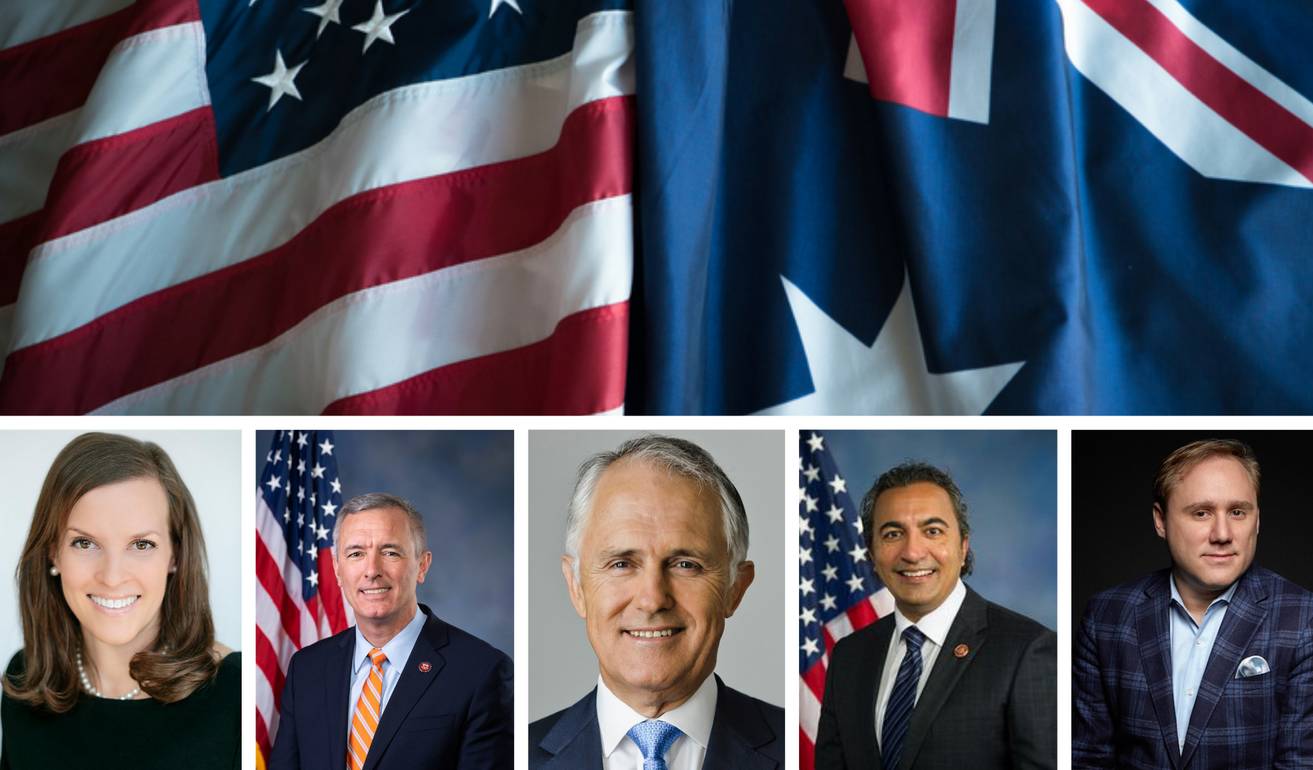Event Recap: “Competing with China: Opportunities for U.S.−Australia Cooperation.”
Hon. Malcolm Turnbull, Rep. John Katko, and Rep. Ami Bera discuss how the U.S. and Australia can work together to counter China’s growing influence
On Tuesday, former Prime Minister of Australia Malcolm Turnbull, Rep. John Katko (R-NY), and Rep. Ami Bera (D-NY) joined Silverado Policy Accelerator to discuss the future of U.S.-Australia relations and how the two nations can work together to offset the rise of China as a global superpower.
In a conversation moderated by Silverado’s co-founders, Maureen Hinman and Dmitri Alperovitch, the panelists examined various areas for expanded economic, strategic, and technological cooperation between the two allies.
In his opening remarks, Prime Minister Turnbull, who also serves as the Honorary Chairman of Silverado’s Strategic Council, stressed the importance of increased cooperation on technological issues, especially expanding access to 5G infrastructure. “The key issue is how did America get to the point where if a U.S. [telecommunications company] wants to move to 5G, it’s basically got four vendors to buy from: two Chinese and two from Europe — there isn’t an American company, there isn’t a British company, a Japanese company, let alone an Australian one,” he said. “We are great knockers of industry policy and dirigisme in the English-speaking world, but you can’t be asleep at the switch.”
Rep. Katko, who serves as Ranking Member on the House Committee on Homeland Security, highlighted the ways that the U.S. and Australia can use their collective economic might to influence the actions of the Chinese Communist Party. “The United States and liberal democracies around the world like Australia must impose costs to try to alter the [Chinese Communist Party’s] behavior in a way that will materially impact their actions and give the global business community principles to rally around,” Rep. Katko said. “…Economic security is homeland security. It’s important enough to say again: Economic security is homeland security.”
In a recorded video statement, Rep. Bera, chairman of the House Subcommittee on Asia, the Pacific, Central Asia, and Nonproliferation, noted the opportunities that the pandemic has created for the U.S. and like-minded nations like Australia to cooperate on a range of economic and strategic issues not directly related to the pandemic. “Some of the vaccine partnerships that came out of the G7 and some of what’s come out of the U.S-Korea summit can set a foundation for additional opportunities where it’s not just about China, but it’s about doing the right thing to defeat the pandemic and provide some of the smaller Asian nations with an alternative to China,” said Rep. Bera. “As we move forward in the 21st century, we will be much better and stronger if we work together as like-minded and like-valued countries, not again to directly counter China, but to come together to provide the nations in Asia as well as throughout the world with a different set of rules and authorities.”
The panelists also answered a range of audience questions touching on the future of the CPTPP, negotiations within the Quadrilateral Security Dialogue (QUAD), and opportunities for international collaboration on cybersecurity.
At the conclusion of the event, Silverado’s Co-Founder and Chair Maureen Hinman summarized four major conclusions from the discussion: “First, stick with your friends—collective counterweights matter. Second, technology is both an accelerant of risk and an accelerant of opportunity, and cyber presents a new and important battlefield. Third, economic security is homeland security . . . and finally, and most importantly, the rules of cricket will always remain a mystery to Americans.”
A full recording of the conversation can be found here on Silverado’s YouTube page.
Pillar
National Security
Trade and Industrial Security
